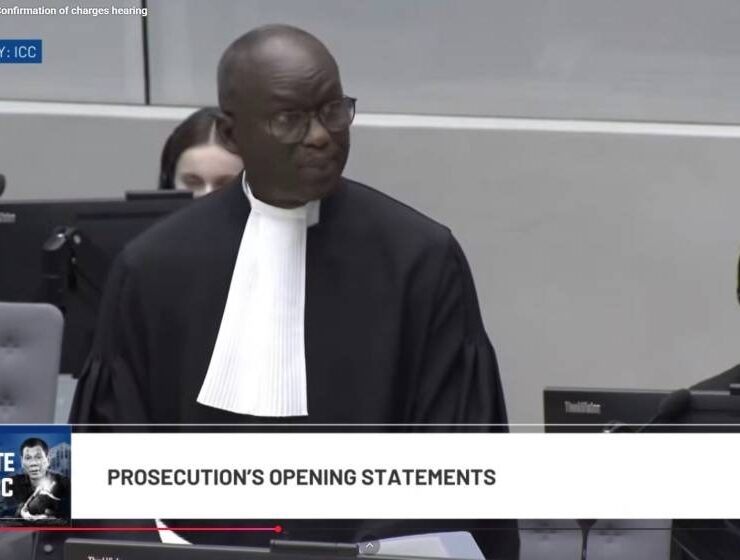When gods err

The moniker “the gods of Padre Faura” refers to the Supreme Court justices ensconced in the neoclassical building on Padre Faura St. in Ermita, Manila. The street is named after Spanish Jesuit priest Fr. Federico Faura, founder of the Manila Observatory, which is now in the Ateneo de Manila University in Quezon City.
Whoever first coined the phrase did it either as an expression of awe or as a left-handed compliment, a double entendre uttered tongue-in-cheek. One Supreme Court justice urged people to stop referring to them as such. Indeed, because they are not gods cloaked with infallibility.
In Greek and Roman mythology, the gods err like mere mortals do, but magnified in a way that could alter the course of events in the spheres where they dwell, on mountain peaks, or in the ocean depths. But, to their credit, as the saying goes, “Whom the gods wish to destroy, they first make mad.” This has applied to the pathocrats, the madmen who ruled in benighted parts of this world.
So, what happens when the Supreme Court hands down a unanimous decision (13-0-2) declaring as unconstitutional a process (citing a technical reason that is, to me, a glaring no-brainer) that belongs to their coequal branch of government, namely, the House of Representatives and the Senate? The technicality was about whether or not the once-a-year rule on impeachments filed against Vice President Sara Duterte in February 2025 had been followed. The Supreme Court decision was the answer to the VP’s petition to declare as null and void the articles of impeachment against her sent by the House to the Senate for hearing.
My view about this naghalo na ang balat sa tinalupan (Reader, translate!) scenario is that this is not about whether the VP is guilty or not of the list of offenses she is accused of as a public official—betrayal of public trust among them—that will have to be tackled in the Senate hearing, but that the SC justices outdid themselves. Overdid might be the better operative word, as in, you guys/gods really overdid this—as your peers, themselves former “gods of Padre Faura,” might say it.
Because on top of all that, the Supreme Court imposed new provisions not found in Article XI (Accountability of Public Officers) of the Constitution, to me, a “back to the future” puzzlement. And on top of that, the Supreme Court did not call for any oral arguments from the parties concerned. And still on top of that, the Supreme Court said the decision is “immediately executory.” (Not final, thank God.) And over the top is the fact that the 97-page decision, penned by Associate Justice Marvic Leonen, down five months after the VP’s petition was filed in February 2025. In fairness, the Supreme Court said their decision did not mean they were absolving the VP.
That, folks, is how I simplified it all in my gray matter and explained it to myself, minus the obfuscating legalese. But I culled all that from the arguments presented by former Supreme Court justices who once walked in the same august Supreme Court halls during their terms. To wit: former chief justices Artemio Panganiban and Reynato Puno and former associate justices Adolfo Azcuna, Antonio Carpio, and Conchita Carpio-Morales pleading that the “gods of Padre Faura” listen to arguments on why and where they have erred. Other individuals and groups have weighed in, foremost among them, lawyer Christian Monsod, like Azcuna, among the framers of the 1987 Constitution, and members of the Philippine Constitutional Association, currently headed by Puno.
The House prosecution panel has filed a motion for reconsideration (MR) before the Supreme Court. We await the outcome with hope and dread.
While I was writing this way past dinner time, the senator-judges were still debating whether they should wait for the Supreme Court’s decision on the MR or go ahead with the hearing. That, even while newbie Sen. Rodante Marcoleta, an unabashed Duterte supporter, was pushing for a dismissal altogether and called the impeachment move void ab initio. Sen. Tito Sotto pointed at the “clear and blatant errors” in the Supreme Court decision, while Sen. Panfilo Lacson said that nowhere in the Senate rules is there a rule to dismiss. Sen Risa Hontiveros reminded that there had been previous Supreme Court unanimous decisions that were later reversed. So, to proceed or to archive?
The Inquirer’s morning-after headline yesterday: “Senate votes to archive Sara impeachment” with the kicker: “A ‘motion to dismiss’ from Sen. Rodante Marcoleta got changed into a ‘motion to archive.’ Citing the House’s appeal at the Supreme Court, Sen. Tito Sotto tried to block it, before the chamber went on to adopt the motion on a 19-4-1 vote.” Read the whole story online.
House prosecution spokesman Antonio Bucoy stressed that although the SC decision says it is “immediately executory,” it does not say it is “final” and executory. With a wise-man tone, the bearded spox cooly added: “Tao lang sila, puedeng magkamali. (They are only human. They can err.)” In Z-speak: Sana ol. Hear ye, hear ye.
—————-
Send feedback to cerespd@gmail.com





















